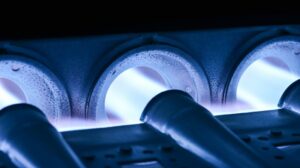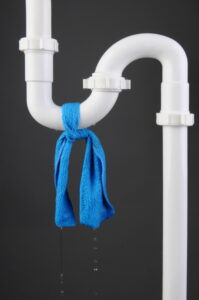
If you’re like many homeowners in the Dunwoody area, you likely have a gas-powered furnace in your home to keep yourself and your family warm. Furnaces are a great heating choice, as they are powerful and very cost-effective.
Today’s furnaces even have a higher efficiency rating than just a short decade ago. In fact, the highest AFUE (annual fuel utilization efficiency) rating for a gas furnace is 98%. Trust us, that’s efficient!
In addition to high efficiency, you want to know you can rely on safety when it comes to your heating system, right? Gas furnaces certainly are not dangerous by nature. However, if you don’t take care of your furnace as you should, then it can certainly become dangerous.
The most common culprit of a dangerous furnace, especially an older one, is a cracked heat exchanger. For a deeper understanding of why this issue is so critical, check out furnace repair needs and the danger of a cracked heat exchanger. Even if you don’t have an obvious problem with your furnace’s heat exchanger right now, if your system is 15+ years old, it’s time to start considering an upgrade.
Read on to learn more!




